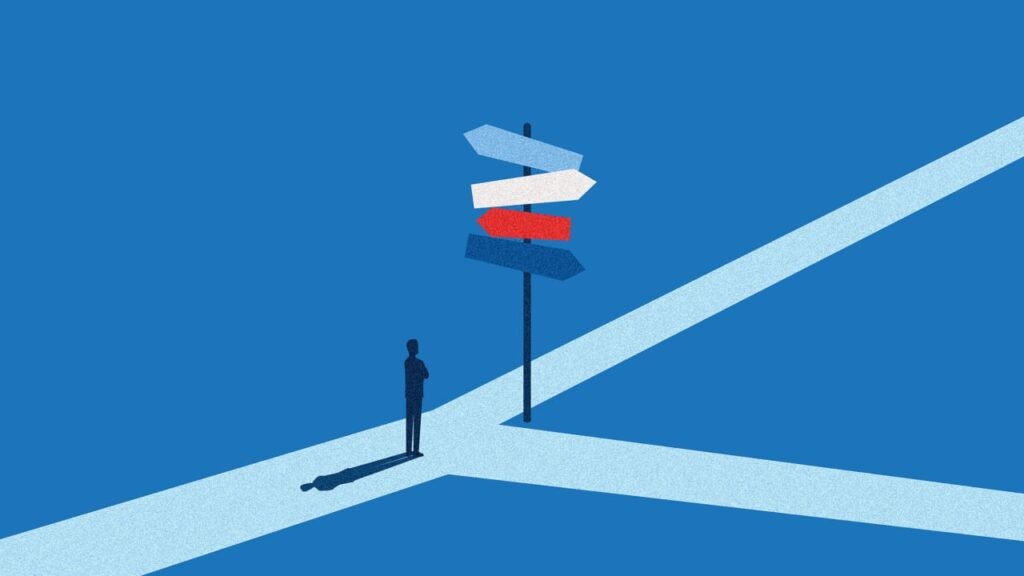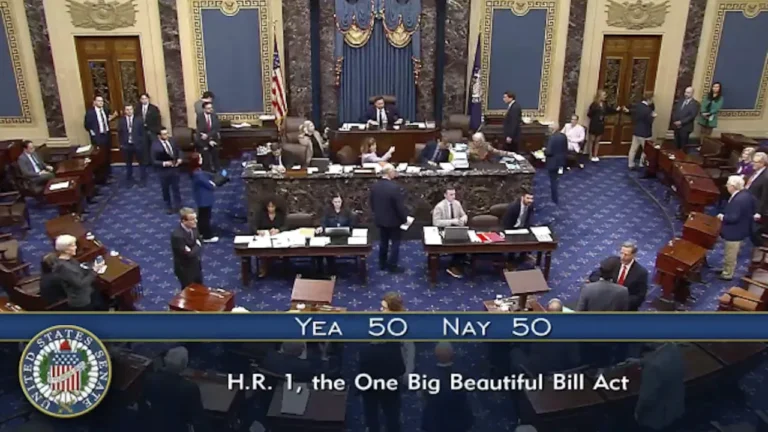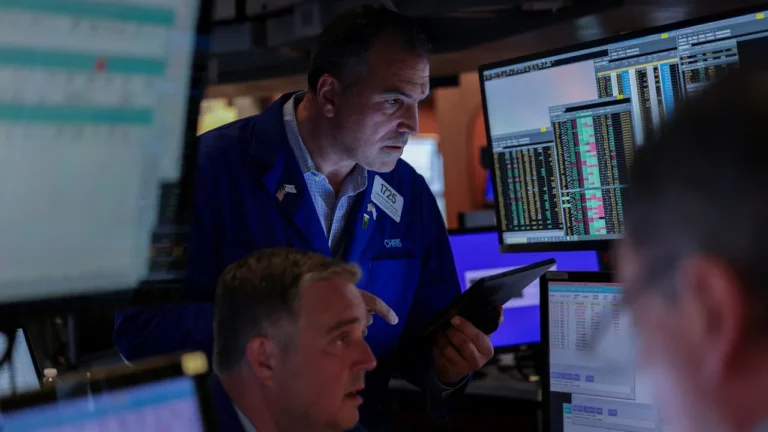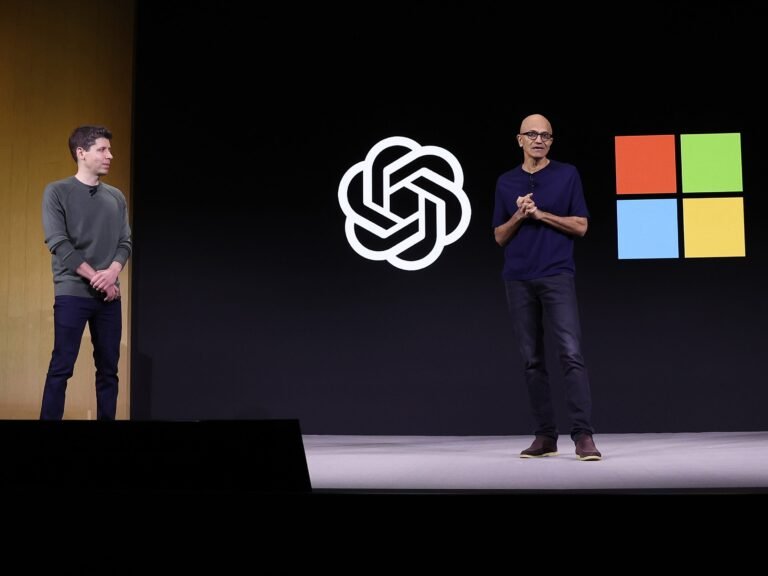
In 2014, I left a secure job at Goldman Sachs to start a nonprofit. On paper, it looked like a reckless move: no funding, no team, barely any experience. But it was the best decision I ever made because it taught me that adaptability matters more than certainty.
While you can’t control President Trump’s second term, you can control how you respond to it by learning to work with uncertainty. As his policies rock supply chains, jobs, and lives, the best career plan is the one that can bend and flex.
Transformation
But let’s be clear: It’s not just Trump driving this uncertainty. AI and automation are transforming entire industries. Generational shifts are changing how people work and what they value in their careers. No matter who’s in the White House, uncertainty is constant. The message couldn’t be more explicit: Nothing is guaranteed except the importance of adaptability.
This is what I call “Trump-proofing” your career, and it’s not about being anti-Trump. Whether you support him or not, his leadership brings unpredictability, and your career plan can’t hinge on any one leader or policy. It must be built to flex and shift with the world around you.
The old idea of climbing a single career ladder no longer holds up. In today’s job market, staying in the same role for too long can hold you back. According to HRreview, workers who change jobs regularly earn, on average, 31% more than those who stick around in the same job for years.
The best plan isn’t a perfect five-year road map. It’s about treating your career like an ongoing experiment, in which trying new roles, taking smart risks, and building transferable skills is more important than following a linear path. This mindset keeps you adaptable and engaged in a world that’s changing faster than any one job can keep up with.
The ripple effects of this new reality are already apparent. More than 120,000 U.S. federal workers have lost their jobs or been targeted for layoffs in 2025, a stark reminder that even government work, once considered the gold standard for stability, isn’t immune to sudden change.
THE PLANNING FALLACY
According to psychologists, the “planning fallacy” is how we fool ourselves into thinking the future will follow our plans. I’ve seen this firsthand.
At 22, I thought I wanted to work in finance. I had spent years pursuing that path, convinced it was the surest way to build a successful career. But once I got there, I realized that the skills I wanted to develop and the goals I cared about didn’t match what I was doing.
The daily work didn’t challenge me in the ways I needed, and it didn’t lead me in a meaningful direction. I realized that sticking with a path that didn’t fit was actually riskier than stepping into the unknown.
So I did it. I moved back to Canada to build something that felt real and important, which pushed me to grow in the right ways. This led me to founding my nonprofit, Venture for Canada, which raised $80 million and empowered more than 10,000 young professionals to launch their careers. Most people thought I was out of my mind. But I learned that real progress in your career and life happens when you’re willing to adapt your skills and goals to match what you and the world at large need most.
Not everyone can walk away from a steady paycheck. My story is just one example. But adaptability isn’t about giant leaps. It’s about small experiments that keep you aligned with what matters most.
FOCUS ON OBJECTIVES AND KEY RESULTS
One tool that’s made a real difference for me is using objectives and key results. OKRs are a great way to break down overwhelming goals into small, measurable steps. Instead of mapping out the next 10 years, focus on the next three months. Pick one meaningful short-term objective, like exploring mission-driven work or building skills in a new sector. Then set two or three key results—small, specific actions you can track. At the end of three months, look back. What worked? What didn’t? Where do you need to pivot?
Here’s how I explain this in my upcoming book, The Uncertainty Advantage: First, identify your top three personal values. For example, if you’re in marketing, your values might be creativity, collaboration, and growth, which inspire you when the world is unpredictable.
Second, set one short-term objective that aligns with those values. Don’t worry about the next decade. Focus on what you can start today—something specific and achievable, like launching a new marketing campaign that pushes your creative skills and brings your team together.
Third, define two or three key results to measure your progress. In this marketing example, your key results might be testing three campaign concepts, meeting with two colleagues to brainstorm fresh ideas, and sharing early results with your manager within the month. They’re small steps that build momentum, keep you learning, and help you stay adaptable.
TREAT YOUR CAREER LIKE AN EXPERIMENT
For some, adaptability might mean staying the course in a stable job. For others, it might mean pivoting into something entirely new. The key is to treat your career like an experiment. If you treat your next move as a chance to test what you care about and what you can build, you can shift from panic to purpose.
I think of a friend who shifted from teaching to technical program management and now wants to work in AI. He didn’t have a 10-year plan. He focused on what sparked his curiosity and where he wanted to grow. It wasn’t about having all the answers. It was about testing, learning, and staying true to his values.
So here’s my challenge to you: Treat your career like the most crucial experiment of your life. Stay curious. Stay connected to what matters. Keep testing new ideas. Because in a world that can shift overnight—and it will—the only plan that keeps working is the one you’re willing to adapt.


